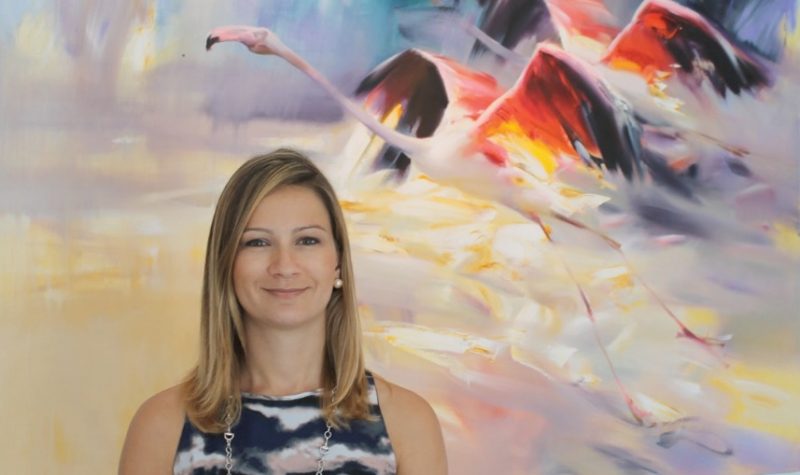Making big impressions on the young through art – Spotlight Magazine Article
May 10, 2016

Leeza Arkhangelskaya will be the guest speaker at the annual luncheon to benefit Collier Child Care Resources (CCCR). She will discuss the importance of exposing children to classical art or representational art during their youngest formative years.
This is a subject about which Arkhangelskaya is passionate. Co-owner, with her mother Olga Arkhangelskaya, of The Gallery on Fifth at the Mercado and East West Fine Art, Arkhangelskaya believes that art is part of our culture and plays an essential role from childhood. She spoke with Spotlight about the highlights of her upcoming talk.
“Childhood is probably the most important time in anybody’s life. Those are the formative years. All the things we experience influence us deeply especially before the age of four,” she said.
From a child’s earliest moments the child is blessed with love from the mother, father and grandparents. They give the child what she needs, physical needs, but they also prepare the child for the future so she will be happy and have a meaningful life, explained Arkhangelskaya.
The mother wants to influence the child in a positive way and so she will expose her child to beautiful things: nature trips, museums, plays. Research shows that when children are exposed to beautiful images be it book illustrations, art albums, art in homes and museums and even movies, they grow up to be more balanced individuals, harmonious and kind, she explained.
Arkhangelskaya emphasizes that representational art, which is defined as art that represents things from our environment: animals, nature, the human form, is the preferred art as opposed to abstract art.
“Art has meaning and emotion. For example, when a child sees something that is ugly, she cries; when she sees something beautiful, she smiles. That’s natural,” she said. Showing paintings of the wonders of nature or a love of a mother for her child, paintings of families, all of these images imprint on the mind of a child that these things are important.
The skill level of the artist is of the ultimate importance, explained Arkhangelskaya.
As an example she explained, in Russia, her native country, to be able to call oneself an artist, you need to have a minimum 17 years of training. A well-trained artist in any field does a better job of conveying the message than an amateur. It also teaches a child that to be good at something you must master your craft. It requires training and hard work.
Original article in Spotlight Magazine
Article and Photography by Kathy O’Flinn
April 2016
kathy@swspotlight.com
